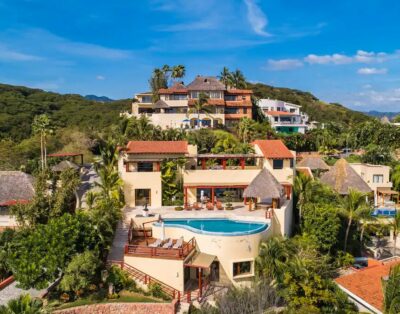Golden Coast Shifts Political dialogues, economic forecasts, and compelling ghana news today shape t
- Golden Coast Shifts: Political dialogues, economic forecasts, and compelling ghana news today shape the nation’s trajectory as artistic expression gains international acclaim.
- Political Developments and National Dialogue
- Economic Forecasts and Investment Opportunities
- Agricultural Sector Performance
- Energy Sector Developments
- Cultural Vibrancy and International Recognition
- Tourism & Hospitality Expansion
- Growth in the Arts and Fashion industries
Golden Coast Shifts: Political dialogues, economic forecasts, and compelling ghana news today shape the nation’s trajectory as artistic expression gains international acclaim.
The flow of information regarding news in ghana today is constantly reshaping the nation’s landscape, impacting everything from political discourse to economic strategies and artistic expression. Ghana, often lauded as a beacon of stability in West Africa, is experiencing a period of dynamic change. This transformation is fueled by robust public debate, evolving financial forecasts, and an increasingly vibrant cultural scene that is gaining recognition on the international stage. Examining these intertwined forces provides a comprehensive picture of the nation’s current trajectory and future possibilities. The interplay between governance, finance, and creative output is particularly crucial in understanding the unfolding narrative of modern Ghana.
Political Developments and National Dialogue
Recent political discussions within Ghana have centered on strategies for sustainable development and inclusive governance. Key figures are engaging in debates surrounding economic diversification, aiming to reduce dependence on traditional commodity exports. The emphasis is on fostering an environment that encourages both domestic and foreign investment, with a particular focus on sectors like technology and renewable energy. This dialogue reflects a growing awareness of the need for long-term planning and adaptability in a rapidly changing global context. The commitment to democratic principles and peaceful transitions of power remains a cornerstone of Ghana’s political identity.
Furthermore, the strengthening of civil society organizations is playing an increasingly vital role in holding the government accountable and advocating for the rights of citizens. These organizations are actively involved in monitoring elections, promoting transparency, and addressing social issues such as poverty and inequality. The active participation of civil society is seen as essential for ensuring that development initiatives benefit all segments of the population. The emphasis is to create a robust democratic system where every voice is heard, and every citizen has the opportunity to contribute to the nation’s progress.
| National Democratic Congress (NDC) | Social Welfare & Inclusive Growth | ‘People’s Manifesto’ focusing on job creation |
| New Patriotic Party (NPP) | Economic Liberalization & Infrastructure | ‘One District One Factory’ industrialization program |
Economic Forecasts and Investment Opportunities
Ghana’s economic outlook is cautiously optimistic, with projections indicating moderate growth in the coming years. Key drivers of this growth include increasing oil production, expanding agricultural output, and a burgeoning services sector. However, challenges remain, including high levels of public debt, inflation, and unemployment. Addressing these challenges requires a comprehensive approach that combines sound fiscal management with targeted investments in infrastructure and human capital. The government is actively seeking to attract foreign direct investment, particularly in sectors with high growth potential.
The growing interest in Ghana’s digital economy is also becoming a major economic force. Start-up funding is increasing, and several tech hubs have sprung up, creating opportunities for young entrepreneurs. Investment in telecommunications infrastructure and improvements in digital literacy are essential to capitalize on this growth. Moreover, Ghana’s position as a regional financial hub is strengthening, drawing investment from neighboring countries and beyond. The banking sector remains resilient, and the government is implementing reforms to enhance financial inclusion and stability.
- Commodity Price Fluctuations: Volatility in global commodity markets remains a risk.
- Infrastructure Deficits: Limited infrastructure hinders economic growth.
- Skills Gap: A shortage of skilled labor restricts productivity gains.
- Debt Sustainability: Managing public debt is a crucial priority.
Agricultural Sector Performance
The agricultural sector remains a cornerstone of the Ghanaian economy, employing a significant portion of the population and contributing substantially to GDP. However, the sector faces numerous challenges, including climate change, land degradation, and limited access to credit and technology. Efforts are underway to modernize agricultural practices, promote irrigation, and support smallholder farmers. Diversification of agricultural production is also a key focus, with emphasis on crops such as cocoa, cashew, and shea nut. Increasing investment in agricultural research and extension services is seen as crucial for boosting productivity and ensuring food security. The government’s ‘Planting for Food and Jobs’ initiative has had some success in increasing yields and reducing food imports.
Furthermore, strengthening supply chains and improving market access for farmers are essential for ensuring that they receive fair prices for their products. The development of agro-processing industries is also a priority, as this can add value to agricultural outputs and create employment opportunities. Addressing land tenure issues and promoting sustainable land management practices are crucial for protecting agricultural resources. Climate-smart agriculture practices are particularly important for adapting to the impacts of climate change and ensuring the long-term sustainability of the sector. The goal is to transform the agricultural sector into a more modern, efficient, and resilient force for economic growth.
Energy Sector Developments
Ghana’s energy sector is undergoing significant transformation, with a growing emphasis on renewable energy sources. While oil and gas remain important contributors to the energy mix, the government is actively promoting the development of solar, wind, and hydropower projects. The goal is to diversify the energy mix, reduce reliance on fossil fuels, and ensure a sustainable and reliable energy supply. Challenges include securing financing for renewable energy projects and upgrading the transmission and distribution infrastructure. Improving energy efficiency is also a key priority. The government is working with private sector partners to attract investment in the energy sector and accelerate the transition to a low-carbon economy.
Investments in energy infrastructure will not only enhance energy security but will also drive economic growth by attracting industries that require a stable and affordable power supply. Furthermore the development of regional energy markets and increased energy trade with neighboring countries are becoming high priorities. Ghana is strategically positioned to become a regional energy hub, leveraging its resources and geographic location to provide energy to neighboring nations. Ultimately the goal is to ensure that all Ghanaians have access to affordable, reliable, and sustainable energy services. By fostering collaboration between the public and private sectors, Ghana looks forward to building a more resilient and competitive energy sector for the future.
Cultural Vibrancy and International Recognition
Ghana’s vibrant culture, rich historical heritage, and creative arts scene are gaining increasing international recognition. The country is hosting a growing number of cultural events, festivals, and exhibitions, drawing visitors from around the world. The “Year of Return” campaign, which encouraged people of African descent to reconnect with their ancestral roots, was a resounding success, significantly boosting tourism and investment. Ghana’s music, art, fashion, and film industries are flourishing, showcasing the country’s creativity and talent to a global audience. Supporting the creative arts is seen as a key driver of economic growth and cultural diplomacy.
The preservation of Ghana’s cultural heritage is also a high priority, with efforts underway to restore historical sites, museums, and traditional crafts. Promoting cultural tourism and investing in cultural infrastructure are seen as essential for maximizing the economic and social benefits of the country’s rich cultural assets. The government and the private sector are working together to create a thriving cultural ecosystem that supports artists, creates employment opportunities, and celebrates Ghana’s unique identity. With an ever-growing connectivity to the international world, the preservation of culture is becoming more and more valued
| Accra International Film Festival | Showcases Ghanaian and international films | 5,000+ |
| Chale Wote Festival | Street art festival celebrating Ghanaian culture | 20,000+ |
Tourism & Hospitality Expansion
The tourism sector has experienced remarkable growth in recent years, driven by increased international interest in Ghana’s cultural attractions, natural beauty, and stable political environment. Investments in hotels, resorts, and tourism infrastructure are expanding, creating employment opportunities and generating revenue for the economy. The country offers tremendous tourism and hospitality prospects as the attention of global audiences are increasingly turning towards Ghana. This expansion is driven by Ghana’s diverse attractions, encompassing national parks, historic castles, beautiful beaches, and vibrant urban centers. The potential is not just in attracting visitors but also in developing sustainable tourism models that benefit local communities and protect the environment. Focusing on eco-tourism and community-based tourism ensures that the economic benefits are spread more evenly and that the cultural and natural assets are preserved for future generations.
Additionally, innovative marketing campaigns and public-private partnerships are helping to promote Ghana as a premier tourism destination. The government is actively easing visa requirements to make it easier for tourists to visit the country. Ultimately, sustained investment in tourism infrastructure coupled with effective marketing and a commitment to customer satisfaction, position Ghana to become a leading destination in West Africa and beyond. A diversified tourism offering, including cultural tourism, eco-tourism, and adventure tourism, can cater to a wide range of travelers and optimize the economic benefits of the sector.
Growth in the Arts and Fashion industries
The creative arts and fashion industries within Ghana are experiencing rapid growth, with a new generation of artists, designers, and entrepreneurs emerging. Ghanaian fashion is gaining international acclaim for its vibrant colors, unique designs, and use of traditional fabrics. Designers are showcasing their collections at international fashion weeks, and Ghanaian brands are gaining a growing presence in global retail markets. The applications of these industries create a massive amount of opportunity for Ghana to really shine on the world stage.
The local fashion sector benefits from both its rich culture and its connections to international trends, offering unique and innovative style statements to the global market. Coupled with this, the growth of the music industry, with genres like Afrobeats gaining worldwide popularity, is attracting attention and establishing Ghana as a key cultural hub of Africa. The investment into these areas will only serve to grow the economy and cultures of Ghana and its citizens. Supporting artist initiatives through mentorship programs and funding initiatives, as well as building marketing platforms to showcase the world what Ghana has to offer.
- Invest in youth education and skill development.
- Promote sustainable tourism practices.
- Diversify the economy and attract foreign investment.
- Strengthen democratic institutions and good governance.
- Enhance regional integration and cooperation.
Ghana currently stands at a pivotal period, poised for continued growth and development. The nation’s commitment to democratic principles, coupled with its burgeoning economy and vibrant culture, positions it as a leader within the West African region. Navigating the challenges of climate change, debt sustainability, and income inequality remains crucial, but the country’s proactive approach to these issues suggests a promising outlook. By prioritizing investment in people, infrastructure, and sustainable practices, Ghana is strengthening its foundation for long-term prosperity and global recognition.


